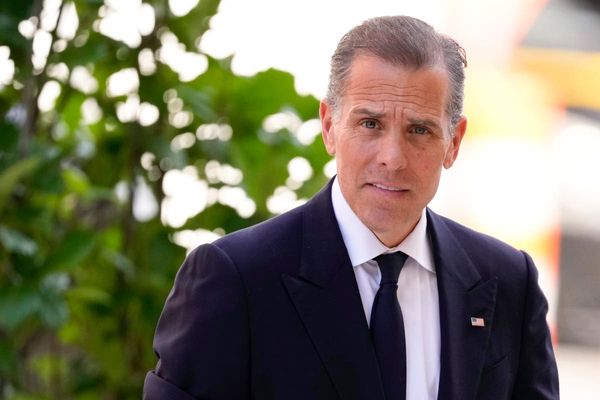
Liz Truss was clear what she wanted. “I have three priorities for our economy,” the prime minister told the Conservative party conference last week: “Growth, growth and growth.” But her problem is that this is not actually clear at all.
The definition of economic growth is an expansion of national income, as measured by GDP (gross domestic product). Since the 1950s it has been the objective of more or less all governments to have GDP growing every year.
In the postwar period there was a good reason for this. Growth gave us all the other things we wanted: falling unemployment, rising incomes, lower inequality, higher tax revenues to pay for public services, even some environmental improvement as a few pollutants declined.
But this is no longer true. From 2010 to 2019, growth averaged around 2% a year, but disposable income has barely increased. This is because the composition of growth has changed. The UK economy has been driven mainly by consumption, rather than investment in capital – like technology – or skills. This has left productivity stagnant, generating almost no growth in average earnings.
In turn, economic growth has not reduced inequality. For 30 years after the second world war, an increasing share of national income went to labour in the form of wages and salaries. But since the mid-1970s more has flowed into the profits and dividends of those who own capital. This “labour share” has declined across almost all developed countries. Income inequality has risen.
The problem is particularly acute in terms of wealth. The past 30 years has seen a huge growth in asset values, particularly land, property and company shares. Ownership of these is highly concentrated, so the gap between the wealthy and the majority has grown much wider. This is “rentier capitalism,” in which the benefits of economic growth flow mainly to asset holders, whose riches grow with no labour or effort on their part (“rent”, in economics-speak).
The phenomenon of unequally distributed growth can be measured by “distributional national accounts”, a new metric which shows the share of growth taken by each income tenth of the population. In the US, these show that from 1980 to 2014, GDP rose by 60% – but while the incomes of the poorest fifth of the population grew by just 4%, those of the richest 1% of the population tripled. In the UK, it is estimated that between 1979 and 2012, almost 40% of economic growth went to the richest 10% of the population, while the entire bottom half received less than 10%.
This raises a deeper issue. Even if incomes rise, do the patterns of consumption and production that generate growth increase our individual and social wellbeing?
Wellbeing is hard to measure, but there are now internationally comparable public surveys that attempt it, while the Office for National Statistics (for the UK) and OECD (for all developed countries) publish a series of “wellbeing indicators”. The results suggest that wellbeing in the UK and elsewhere had been declining for some years even before the pandemic caused it to plummet. For this reason some governments, such as those in New Zealand and Canada, have begun explicitly to think about how they can focus policy on raising wellbeing, not just GDP growth.
The largest question mark against growth as a measure of economic progress has been environmental. Fifty years ago, the landmark report The Limits to Growth warned that, unless the composition of growth was radically changed, its environmental impacts would lead to ecological and social collapse within 100 years.
Many of the projections made by The Limits to Growth have proved prescient. Yet it is also true that developed economies have been able to “uncouple” growth from some environmental impacts. Over the past 20 years, the UK and others have notably seen rising GDP accompanied by falling greenhouse gas emissions. Economists have described this as “green growth”, and many have argued that this, rather than growth per se, should be governments’ goal.
But a partial greening of GDP is not enough. Very few, if any, economies have arrested the decline in biodiversity, soil quality, marine pollution or overall global environmental footprint. And even though carbon emissions are falling, they are not falling rapidly enough to avoid catastrophic global heating.
Some environmentalists argue that environmental sustainability does not allow for any economic growth. Only the “degrowth” of western economies, they claim, is compatible with ecological salvation (and indeed, wellbeing). Others claim that GDP could still grow in a radically greener form. But in present circumstances this is a rather arcane dispute. Both sides agree that some parts of the economy must degrow, notably the fossil fuel sector and fossil-intensive industries, while growth is clearly needed in others, such as renewable energy and the “care economy” of health, education, social care and childcare. The real question is therefore not “growth or not?”, but “growth of what?”
It is for this reason that a number of economists argue today that growth should no longer be governments’ primary economic objective. Since the same rate of GDP growth can generate improvements in average incomes, inequality and the environment, or the reverse, policy needs to focus not on growth, but directly on the things we want our economy to generate. A recent report to the OECD entitled “Beyond Growth” proposed that today’s primary goals should be environmental sustainability, falling inequality, rising wellbeing (including, but not only, incomes) and strengthening resilience. This is sometimes referred to as a “post-growth” agenda: not opposed to growth, but equally, not relying on the mere hope that growth will somehow automatically achieve these social and environmental priorities.
Truss claimed her economic strategy is opposed by an “anti-growth coalition”. It would be truer to say that most of the public will be glad to have rising incomes, but not if they are accompanied by ecological disaster, rising inequality and declining quality of life. Of course, a sustainable, egalitarian and wellbeing-focused economy would require a different approach altogether.
Michael Jacobs is professor of political economy at the University of Sheffield







